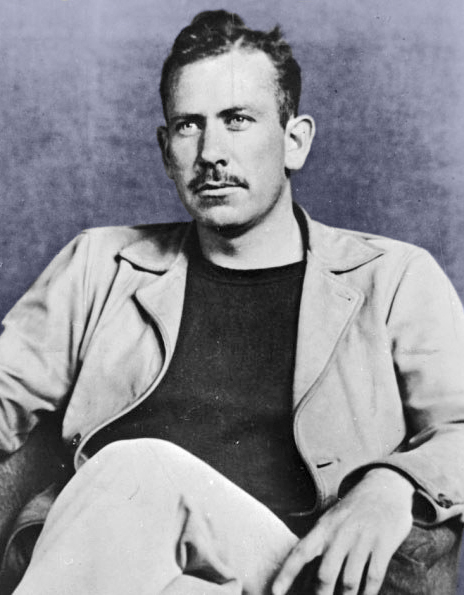
Here, John Steinbeck writes to LBJ following his March 15 speech to Congress, calling for the passage of the Voting Rights Act. Johnson famously used the phrase “we shall overcome,” invoking the language of civil rights activists. The speech was made in the midst of activists’ attempts to march from Selma to Montgomery, which were completed on March 25.
New York
March 17, 1965
Dear Mr. President:
Always there have been men who had contempt for the “word” although words have survived better than any other man-made things. St. John says, “In the beginning was the Word, and the Word was God.” When you have finished using a weapon, someone is dead or injured, but the product of the word can be life and hope and survival. All of the greatness of our species rests on words—Socrates to his judges—the Sermon on the Mount, the introduction to Wyclif’s Bible, later taken by Lincoln for the Gettysburg Address. And all of these great and irretrievable words have the bravery of fear and hope in them. There must have been a fierce but hollow feeling in the members of the Continental Congress when the clerk first read the words, “When in the course of human events—.” Lincoln must have dwelt with loneliness when he wrote the order of mobilization.
In our history there have been not more than five or six moments when the word and the determination mapped the course of the future. Such a moment was your speech, Sir, to the Congress two nights ago. Our people will be living by phrases from that speech when all the concrete and steel have long been displaced or destroyed. It was a time of no turning back, and in my mind as well as in many others, you have placed your name among the great ones of history.
And I take great pride in the fact that you are my President.
Yours in admiration,
John Steinbeck
From Steinbeck: A Life in Letters. Steinbeck, John. New York: Viking Press, 1975.


